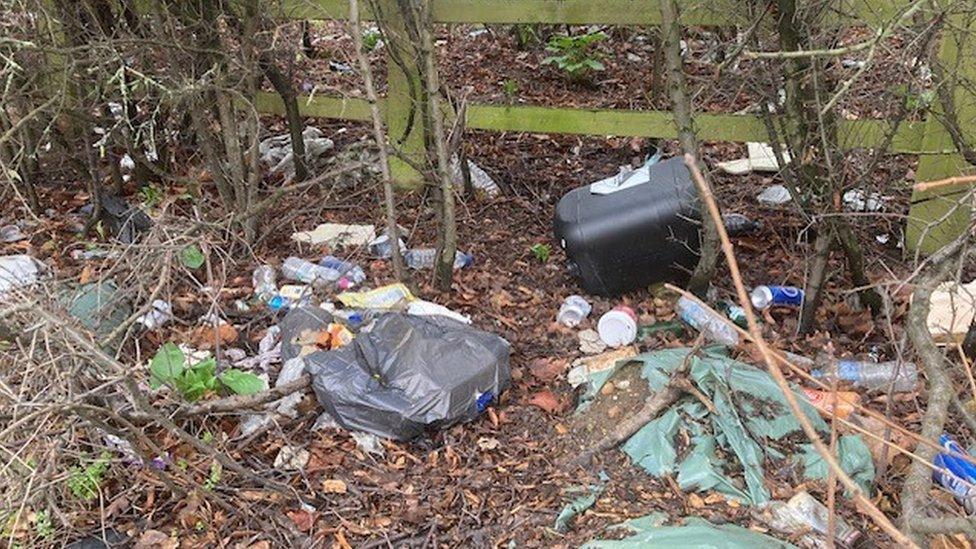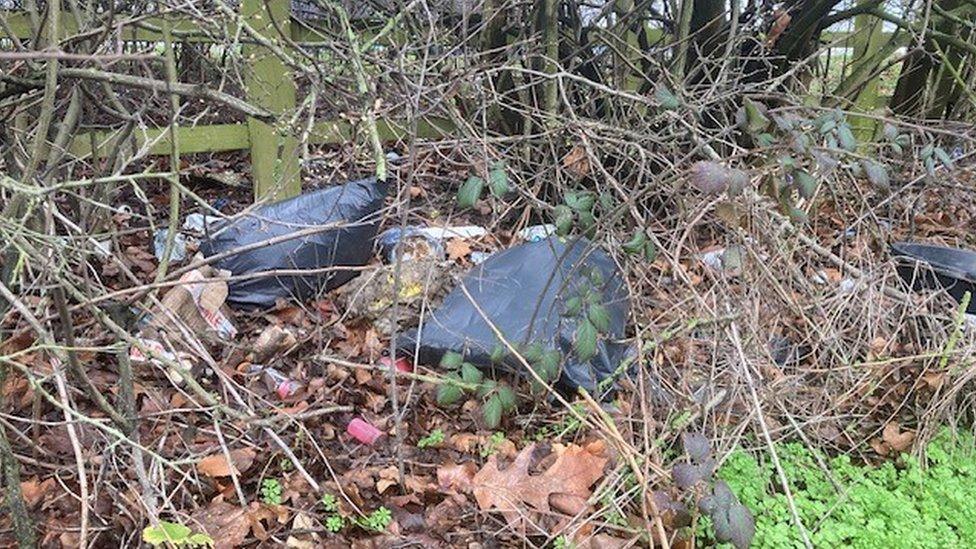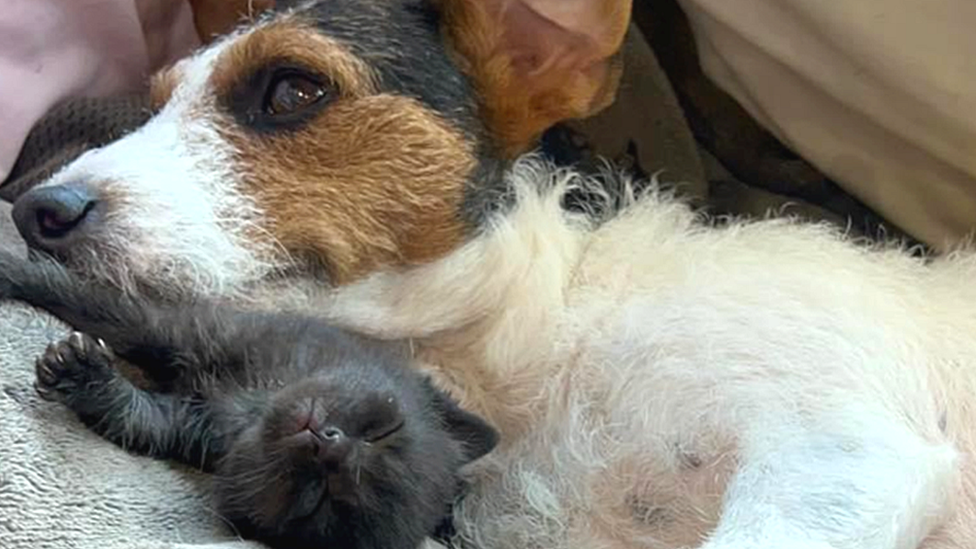South Essex Wildlife hospital warns littering is killing animals
- Published

When vegetation grows during the warmer months many animals cannot see the dangers, a wildlife hospital warns
A wildlife hospital has said that thousands of animals have been killed each year because of litter.
South Essex Wildlife Hospital in Orsett, Essex, has warned that one of the main causes of death was when animals become caught up in litter, including netting.
National Highways has launched a new campaign to tackle the problem.
Sue Schwar, the hospital's manager, said littering seemed to be worsening and it posed a "danger" to wildlife.
Ms Schwar, speaking to the BBC, said: "Sadly litter affects wildlife very adversely, we get lots of animals getting caught up in discarded litter.
"Some of them we can save but they're notoriously difficult to catch, and sadly we don't and it does cause the death of many thousands of animals every year."
She said glass bottles were "notorious" for trapping voles, and that many foxes had got "their heads trapped in plastic jars".
'We are all responsible'
"We've seen lots of animals die when they've got something like a constriction injury around their neck, particularly younger animals that get caught [in it] and it gets tighter and tighter as they grow," Ms Schwar said.
She said it can often lead to fatal infections and choking.

The animal hospital has seen a lot of injuries and deaths after animals have become trapped in plastic jars and bottes while trying to get food
"I think it is getting worse as far as the amount of litter about. There are community groups that go out and pick up litter, which is absolutely fantastic to see, but we're all responsible for not throwing it away in the first place," she said.
She added that litter on the sides of main roads, such as the A12 and A13, was a "constant danger", especially when vegetation grows and makes it more difficult for animals to see the rubbish.
She added that one of the biggest issues was when animals become caught in a fishing line or any kind of netting.
National Highways said over the last three years, the RSPCA has received more than 10,000 reports of animals found injured, trapped or dead as a result of discarded litter.
The government agency has formed a new initiative to try and reduce littering, which includes using AI-enabled cameras and working with local authorities to carry out enforcement.
National Highways has also trialled using motorway message signs and geofencing, the latter of which enables it to send texts to motorists entering laybys where littering is an issue to prompt them to take their rubbish home with them.

Follow East of England news on Facebook, external, Instagram, external and X, external. Got a story? Email eastofenglandnews@bbc.co.uk, external or WhatsApp 0800 169 1830
- Published22 November 2023
- Published8 November 2023
